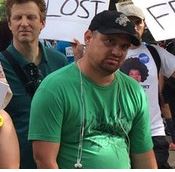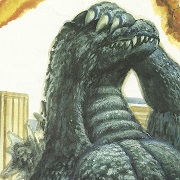|
the virgin taibbi versus the chad ames its actually dolan quote:
the rest of the newsletter is good
|
|
|
|

|
| # ? Jun 11, 2024 04:20 |
|
AngryBooch posted:Taibbi quote arguing with sub-100 follower twitter accounts is proof that the Left is out of control! He's only a contrarian in defense of terrible sci-fi properties he's right on about pretty much everything else. Groovelord Neato fucked around with this message at 23:28 on Jul 20, 2020 |
|
|
|
Michael Brooks apparently died https://twitter.com/majorityfm/status/1285342049039003648?s=21
|
|
|
|
Yeah this poo poo sucks. RIP Michael Brooks
|
|
|
|
FlamingLiberal posted:Michael Brooks apparently died drat, he was one of the last sources for good left-wing analysis and I watched his show regularly. He looked fine in recent episodes, this is out of the blue.
|
|
|
|
Shipon posted:lmao i agreed for the most part with taibbi and amber on the episode even if i felt taibbi was being a bit lib but his recent turn is just insane Having listened to his podcast for a while, I really don't see any "recent turn" with Taibbi.
|
|
|
|
Unreal. I think Sam learned about it on air today since he looked shocked and ended the show very abruptly.
|
|
|
|
NoEyedSquareGuy posted:drat, he was one of the last sources for good left-wing analysis and I watched his show regularly. He looked fine in recent episodes, this is out of the blue. A personal acquaintance died recently, both suddenly and unexpectedly. He was only 36, I can't imagine Michael Brooks was far from that age. I'm surprised how much this person's death affected me, and Michael Brooks' is a tough one to get hit with a few days later. gently caress
|
|
|
|
Anyone know what happened to Brooks exactly? Pretty out of the blue. It sucks. I really enjoyed his work.
|
|
|
|
Malaria posted:Anyone know what happened to Brooks exactly? Hasan said it was pulmonary embolism on his stream apparently.
|
|
|
|
Malaria posted:Anyone know what happened to Brooks exactly? someone in another thread said that they had heard pulmonary embolism. when someone his age dies from a "sudden illness" it usually means something like that or an undiagnosed heart defect (or it's a euphemism for OD/suicide. that doesn't seem particularly likely here but you never know).
|
|
|
|
Shipon posted:Hasan said it was pulmonary embolism on his stream apparently.
|
|
|
|
Phone posted:the virgin taibbi versus the chad ames its actually dolan can you post/link the rest
|
|
|
|
I just at this moment learned Andrew Sullivan is not Anthony Sullivan and I want to go back to before that happened
|
|
|
|
lol at Taibbi. Dig up, stupid!
|
|
|
|
crepeface posted:can you post/link the rest Amateurs Talk Cancel, Pros Talk Silence What, you thought you were safe? You’d get through the big "Cancel Culture" war without me popping off? No such luck. Public morality should be pretty simple. When an oppressed group gets enough power to make its oppressors behave, they will do so — and they should. The real problem, the kind of thing that would make De Niro in Casino groan, “Amateur night!”, starts when people imagine that they can stop immoral behavior by policing immoral characters, phrases, or scenes in literature. They’re looking for the wrong thing. They’re sniffing for depictions of immorality, when they should be scanning the silences, the evasions. There’s a very naïve theory of language at work here, roughly: “if people speak nicely, they’ll act nicely” — with the fatuous corollary, “If people mention bad things, they must like bad things.” The simplest refutation of that is two words: Victorian Britain. Victorian Britain carried out several of the biggest genocides in human history. It was also a high point of virtuous literature. Because they were smart about language. They didn’t rant about the evil of their victims or gloat about massacring them, at least not in their public writings. They wrote virtuous novels, virtuous poems. And left a body count which may well end up the biggest in world history. Open genocidal ranting is small-time stuff compared to the rhetorical nuke perfected by Victoria’s genocidaires: silence. The Victorian Empire was the high point of this technology, which is why it still gets a pass most of the time. Even when someone takes it on and scores a direct hit, as Mike Davis did in his book Late Victorian Holocausts, the cone of Anglosphere silence contains and muffles the explosion. Which is why Late Victorian Holocausts is Davis’s only book that didn’t become a best-seller. Davis was among the first historians with the guts and originality to look hard at some of the Victorian creeps who killed tens of millions — yes, tens of millions — of people from the conquered tropics: “The total human toll of these three waves of drought, famine, and disease could not have been less than 30 million victims. Fifty million dead might not be unrealistic.” An English radical of the Victorian Era, William Digby, saw the scope of the horror: “When the part played by the British Empire in the nineteenth century is regarded by the historian fifty years hence, the unnecessary deaths of millions of Indians would be its principal and most notorious monument.” But that didn’t happen. There was no wave of conscience among historians of the British Empire in the 1920s (or 30s or 40s or, to end the suspense, ever.) Davis puts it bluntly: “[T]he famine children of 1876 and 1899 have disappeared.” How did this happen? Why is it still happening? What are the lessons for those studying literature, propaganda, and ideology? They’re very grim lessons, as it happens. While grad students comb texts for improper remarks, they miss the real point: the vast silence, and the paint-job of virtue that helps distract us. Ideology doesn’t seem to do any good at clearing away the bigotry of Imperial history. Charles Kingsley, prominent novelist of mid-nineteenth-century Britain, was honored as promoter of socialist causes — while he wrote in letters to his wife about his loathing for the “white chimpanzees” whose corpses were littering the roadside when he visited Sligo during the Famine in the 1840s. We go to his Wiki for a quick bio of Kingsley, and the first thing we find is “working men’s socialism.” Sounds good, right? Not if you’ve steeped yourself in the vile culture of mid-19th c. Britain. It sounds like boasting maybe, but it’s the simple truth: as soon as I saw that subhead, I KNEW, for certain, that Kingsley must have hated the Irish. And sure enough, there’s a whole subhead on his “Virulent Dislike of the Irish”: Virulent dislike of the Irish Kingsley was accused of racism towards the Roman Catholic Irish poor and described Irish people in rabid and virulent terms. Visiting County Sligo, Ireland, he wrote a letter to his wife from Markree Castle in 1860: "I am haunted by the human chimpanzees I saw along that hundred miles of horrible country [Ireland] ... to see white chimpanzees is dreadful; if they were black one would not see it so much, but their skins, except where tanned by exposure, are as white as ours.” Someday (not in my lifetime), the UK Left will have to deal with this stuff. Your movement comes straight out of Cromwell, the Gordon Street rioters, and the Baptists, all steeped in ethnic/sectarian hate. I’m not telling you what to do, but noticing that fact would be a start. Kingsley wrote several best-sellers after the Great Famine. It shouldn’t come as a surprise that none of them have anything to do with the Famine. These people were cunning, if mediocre; they saved the bile for private letters about “white chimpanzees.” But it’s easy to dismiss Kingsley as a middlebrow entertainer. Let’s take a far more serious case: Eric Hobsbawm, still revered as canonical Marxist historian of the UK. As Davis notes, Hobsbawm does “mention” the Irish Famine, but — and if any phrase ever deserves to be written in all-caps, this phrase from Late Victorian Holocausts does: “Hobsbawm...makes no allusion in his famous trilogy on nineteenth-century history to the worst famines in perhaps 500 years in India and China.” There are no excuses for this. There are reasons, but as the song says, “It doesn’t make it all right.” Still, once the rage passes and you stop clenching your jaw ’til it aches, there are reasons. Most of all, there’s a deep Imperial skill in the trope of silence. The stupid Nazis ranted and raved and lasted 13 years, then got completely destroyed. The Empire kept its rants for private letters, passed on to a guild of coopted historians, pundits, and publishers—and has never been called to account. Maybe it never will be. That poor optimist radical Davis mentions thought the exposé would be big news by 1925. Well, it’s 2020, and the Empire is still remembered fondly. Victoria herself is a beloved figure all over again. Silence is the only really effective PR for a genocide, and the nature of artificial famines, as opposed to mass executions, makes silence particularly effective. Famines, most people still believe, are acts of God, or matters of chance, or perhaps (under their breath) the result of the sheer fecklessness of the victims, for being Papists as in Ireland, or Hindus as in India, or Muslims as in contemporary Somalia. After all, the Empire wasn’t standing people up against a wall and shooting them (except sometimes, as in Kenya, and the Empire handled that by putting the records on ships and dropping them into the Indian Ocean.) Silence, not Nazi-style boasting. That’s the key. We should be looking for omissions, not gaffes. Gaffes are for hicks like Hitler. Silence is the grown-up way to hide vast genocides. The key to effective silence is to coopt, not alienate, your intelligentsia. The hick Nazis drove out or killed their intellectuals; the Empire suborned and coddled its writers and poets, often promoting those of little talent (whose works are still vaguely canonical), adding intellectual insecurity as another motive for collusion. Tennyson makes a good start here. Anybody associate Tennyson with genocide? Didn’t think so. He never mentioned it — in his canonical writings. He and Victoria were neighbors, chums, and he won every honor the Empire could bestow, despite being by general consent the stupidest “major” poet in the canon. You’d never link Tennyson to genocide, until you look at his private letters and his friends’ memoirs. Then you see the perfect melding of silence and violent hatred, as in Kingsley, as in case after case after case that you never hear about — and if you do dare to mention one of the cases, will get you a grumpy, “Oh yes, we know about all that, they held some pretty objectionable opinions, as was common at the time…” (I wish I could do the inflection on "pretty objectionable." It’s one you hear often among Commonweath academics, especially after the second drink.) I once read Tennyson’s letters and found to my shock that he had visited Famine Ireland. Even in his letters there is not one mention of the dead. What you do get is a set of rules he laid down, as a celebrity, to his hosts as he made his way from one vampire castle to the next (never mind Mark Fisher, these guys were the real thing): he was not to be spoken to about “Irish distress,” and the window shades of the carriages in which he rode from one Ascendancy manse to another were to be kept completely shut, lest he see the bodies. You can see why Bram Stoker, a minor Ascendancy Igor, did his best to move Nosferatu as far to the east and south as he could. As poor Byron, the one real hero of British literature, pointed out, the “moral North” always preferred to place evil as far to the east and south of Britain as it could. So I read these letters in New Zealand and wrote to the leading Tennyson biographer, asking, “Can you explain to me why you’ve never written on Tennyson’s visit to Ireland?” He replied, “I suppose (!) because Tennyson never mentioned it.” That, folks, is how you cover up a genocide. It’s leaked a little in the 170 years since it was successfully carried out. But it lasted longer than any other cursed tomb in history. Nowhere — not in Dublin, not in London — was there any commemoration of the Famine on its 50th anniversary in 1897, or its hundredth in 1947. In 1998 Blair gave a very carefully-worded quasi-apology, and I still remember Jeremy Clarkson’s response: “I see Blair has apologized to the Irish for poisoning their potatoes.” In short, this method works. We are its products; we live in the delusion it created, and like it or not, Hobsbawm and a host of other Igors have that blood on their hands along with the outright vampires. Sometimes you end up angrier at the Igors than the Nosferatus. So the key to radio silence over a genocide is cooption — very, very literal, straightforward cooption. The best candidates are novelists and poets, especially mediocre ones. Many imperial officials moonlighted in both the active (killing) part of the genocides, and the passive PR side. Many were very popular writers, and all their doorstop books were virtuous, virtuous, oh so virtuous. The vilest of the lot, perhaps, was Robert Bulwer-Lytton, First Earl of Lytton, the Famine Queen’s fave poet, whom she pushed for the post of Viceroy to India. After getting the post in 1876, Lytton presided over artificial famines that killed tens of millions of Asians. No one outside India seems to mind, or even remember, that side of his life. He is remembered only as the son of Edward Bulwer-Lytton, the cuddly old silly who wrote “It was a dark and stormy night,” the inspiration of those “Worst Opening Sentence” competitions. Lytton’s novelist father was a monster too, but he could only terrorize his family and servants. As Viceroy to India, his poet son was able to inflict, and then cover up, misery on a much more vast scale. As Mike Davis says: “The Central Government [of British India] under the leadership of Queen Victoria’s leading poet, Lord Lytton, vehemently opposed efforts…to stockpile grain or otherwise interfere with market forces. All through the Autumn of 1876, while the kharif crop was withering in the fields… Lytton had been absorbed in organizing the immense Imperial Assemblage in Delhi to proclaim Victoria Empress of India (Kaiser-e-Hind). As The Times [of London]’s special correspondent described it, ‘The Viceroy seemed to have made the tales of Arabian fiction come true…nothing was too rich, nothing too costly.’ [This feast] ‘achieved the two criteria [set for Lytton], of being ‘gaudy enough to impress the orientals’ and…a pageant which hid the nakedness of the sword on which we really rely.’ An English journalist later estimated that 100,000 of the Queen-Empress’s subjects starved to death…in the course of Lytton’s spectacular durbar.” But don’t expect to find anything in Lytton’s poems about these artificial famines. He wasn’t that dumb. The poems are astoundingly dull, and the most surprising thing about the repeated charges of plagiarism that were made against them is that Lytton could steal so much decent poetry and make such complete crap out of it. Well, he was an Earl, Victoria swooned for him, and above all, he had no more conscience than a weasel. In short, he was the man for his time and place. He fit right in there — because the Victorian elite were unquestionably the worst human beings who ever lived. “Including the Nazis?” Yes. No contest, once the Indian and Chinese intelligentsia give us what we’ve never had: an accurate body count for Victoria’s Empire. Or, if you prefer, consider the timelines: Nazis, 13 years in power; Britain’s tropical genocides, a century at least. What do you find, then, when you look for literary “clues to the horror” in Lytton’s poetry? Nothing. English-Department products will never admit that, if only because it precludes all sorts of Blackadder-level cunning that find all sorts of secret guilt in unlikely places like Wuthering loving Heights. (Sorry Terry Eagleton, you probably meant well.) These people had no conscience. Don’t waste time looking for one. Here’s a sample of the endless “novel in verse” Lytton wrote (under the pseudonym "Owen Meredith" — not to be confused with George Meredith, a talented poet and radical who doesn’t deserve the shame of being taken for Lytton). You really don’t need more than a sample of Lytton’s vaporous drone. Read it and sleep: But scarce had the nomad unfurl'd His wandering tent at Mysore, in the smile Of a Rajah (whose court he controll'd for a while, And whose council he prompted and govern'd by stealth); Scarce, indeed, had he wedded an Indian of wealth, Who died giving birth to this daughter, before He was borne to the tomb of his wife at Mysore. His fortune, which fell to his orphan, perchance Had secured her a home with his sister in France, A lone woman, the last of the race left. Lucile Neither felt, nor affected, the wish to conceal The half-Eastern blood, which appear'd to bequeath (Reveal'd now and then, though but rarely, beneath That outward repose that concealed it in her) A something half wild to her strange character. The nurse with the orphan, awhile broken-hearted, At the door of a convent in Paris had parted. But later, once more, with her mistress she tarried, When the girl, by that grim maiden aunt, had been married To a dreary old Count, who had sullenly died, With no claim on her tears—she had wept as a bride. Said Lord Alfred, "Your mistress expects me." The crone Oped the drawing-room door, and there left him alone. There was a time when I could have spun a cunning hermeneutic web here, revealing the scandalous insight that in this passage, the “Indian of wealth” has only one purpose: to die, leaving her wealth to that white guy. But that’s grad-school crap, deserving no more than a Butthead “Well DUH, dumbass!” Orientalism has made a lot of careers and missed the big point. That’s not the real work of poems like this. Their real point is to exist. It’s to be long, to be maudlin, and to be inoffensive to the original audience. You won’t find gloating, you won’t see death’s heads on every officer’s cap. That stuff was for the Nazis, who were hicks themselves. The pro’s, like Lord Lytton, wrote virtuous, vapory blather like this. Reams of it. Best smoke-screen a genocidaire could want. Lytton let 6 or 7 million peasants starve, in what had been the rice bowl of the world, for reasons which will sound familiar to readers familiar with the work of Amartya Sen — ideological, "free-market" decisions that somehow always managed to wipe out populations which had been annoying the Empire. BTW, you can see classic port-sipping Donnish rage in sites reacting to Sen’s work, like this one. Lytton’s callousness has been ascribed, when it gets mentioned at all, to the fact that he was a lunatic, an opium addict, a lifelong jerk, etc. He was all those things, but you’re playing into the hands of the Imperial rear guard (HQ Oxbridge and London) if you start pondering individual psychology. As Davis says, “[I]n adopting a strict laissez-faire approach to famine, Lytton, demented or not...[was] only repeating orthodox catechism...He issued strict, 'semi-theological' orders that ‘there is to be no interference of any kind on the part of the Government with the object of reducing the price of food,’ and in his letters home to the India Office and to politicians of both parties, he denounced ‘humanitarian hysterics.’...By official dictate, India like Ireland before it had become a Utilitarian laboratory...Grain merchants, in fact, preferred to export a record 6.4 cwt of wheat to Europe in 1877-78 rather than relieve starvation in India.” “As in Ireland” indeed. The parallels between India after the 1857 "Mutiny" and Ireland after repeated rebellions are obvious, and have been pointed out many times. In both cases it was not simply free enterprise dogma that doomed the victims: both populations were seen, bluntly put, as vermin, and many officials were not shy about saying God Himself was taking a hand to rid the Empire of them. Indian intellectuals, from Sen onward, have been much braver than most victims in dealing with Imperial hatred of their ancestors. After the 1857 rebellion in India was crushed, the whole culture of the Raj changed. Many early 19th c. British occupiers had dabbled in local cultures, but after 1857, this was derided as “going native.” Instead of pre-Victorian eccentrics, often brilliant and downright weird, the Raj snapped into line hard and demanded laconic, effectual mediocrity — men of few words and fewer thoughts, “men of action” whose echoes you can still hear in Wodehouse characters (always bad guys) who are archly described as “Empire-builders” or “the kind of man who made Britain what it is.” After the 1857 "Mutiny", the Raj repented of its brief flirtation with the cultures of the Indian center and began recruiting “frontier tribes,” especially Pashtun, who had no loyalty to pre-Conquest India. Once the Suez Canal was finished, Raj officials were able to live in a virtual Britain, dealing with Indians as little as possible: “British contacts with Indian society diminished in every respect (fewer British men, for example, openly consorted with Indian women), and British sympathy for and understanding of Indian life and culture were, for the most part, replaced by suspicion, indifference, and fear.” I’m going to deal with literary responses to the Irish Famine of the 1840s rather than the Indian famine of the 1870s, for two reasons —one lame, and one a little more plausible. The lame one first: I know the literature of the 1840s and 50s better than that of the 1870s. Now the reasonable one: the UK literary/intellectual world could claim ignorance of what was happening far away in India, but no one who could read a newspaper in London could claim not to know that a million people, fellow citizens of the UK, were dying in huge numbers just a few miles away. So let’s look at the best-sellers of that era — not like poor Eagleton, desperate to find some saving grace, but coldly, seeing, as Stevens would say, “Nothing that is not there/And the nothing that is.” A little context, for those lucky enough not to have wasted years on this very Schopenhauerian story: there were bad crops in much of Europe in 1845-50, but in most of the Continent, local organizations were able to provide some bare minimum of relief. As Amartya Sen said, lethal famines happen when shortages strike populations with no power, either financial or political. These are populations already hated by their rulers, and to put it bluntly, their rulers welcome the famines. The tater, which had been imported from Peru by Spanish conquistadors in the 16th century, were the perfect slave-food. European peasants relied on the potato all across the northern tier, not just in Ireland. Ever see that Van Gogh painting, “The Potato-Eaters”? What did their potato-eating ancestors in Flanders do when the 1840s blight came? They survived thanks to local organizations that were able to limit the harm caused by crop failures: “Flanders is a typical case where local communities carried the heaviest burden in organising and financing relief, control and repression activities. In the crisis years about two-fifths of the people in the most affected areas received some form of communal aid. In the Netherlands in 1847 18% of the people were supported by local relief boards, against 13% in 1840-1844. In some regions the numbers supported doubled. In France expenditures of the local relief boards doubled between 1843 and 1847, often financed by an extra ‘poor tax’. The same pattern is seen in South Germany.” In Flanders, in France, in Germany, those at risk were hated only in the relatively mild way that the rich always hated the poor — a hatred tempered by the fact that the elites saw these wretches as belonging to their own group. Not so in Ireland, in the Highlands of Scotland (which shared a history of stubborn Papism, a different language, and chronic rebellion) — or India in the 1870s. The British elite began to nourish a particular hatred of India, especially Hindu regions of India, after the 1857 Rebellion. The uprising by supposedly loyal local auxiliaries drove the occupiers insane, in a way that would have been very familiar to any survivors of the Irish Famine of the 1840s. In both cases, clever Imperial officials said nothing incriminating, but in the 1847 crisis, some high officials had not learned their lesson properly and said bluntly that any famine that wiped out a troublesome population was a good famine — sent by God, in fact. Trevelyan, the official in charge of dealing with the crisis, said, "The judgement of God sent the calamity to teach the Irish a lesson, that calamity must not be too much mitigated." They talked a lot about the “moral evil of the people” as the real cause of mass starvation, and said outright that, "We must not complain of what we really want to obtain. If small farmers go, and their landlords are reduced to sell portions of their estates to persons who will invest capital we shall at last arrive at something like a satisfactory settlement of the country." What you see here is free-market ideology, yes — but you can’t make the mistake of dismissing ethnic hatred as unreal, therefore not a factor. If free-market ideology had been as cold and rational as it claimed (and still claims) to be, poor people all over Britain would have been left to rot by the roads. Ethnic hatred is real, and it exercises a real power over ruling elites’ decisions. There’s a strain of Leftist intellectual inclined to deny this at all costs, in the way that abuse victims who get religion blame their rape memories and whip scars on “Satan” rather than their stepfather. The "socialist" polemics of Charles Kingsley are an almost ridiculously clear example of the way ideology did NOT help any Imperial writers to see what was in front of their eyes. What did Charles Kingsley offer to the British public in 1848, when the Famine was wiping out the Irish-speaking peasantry? Ladies and Gentlemen, I offer you…drum roll…YEAST! “Motivated by his strong convictions as a Christian Socialist Kingsley wrote Yeast as an attack on Roman Catholicism and the Oxford Movement, on celibacy, the game laws, bad landlords and bad sanitation, and on the whole social system insofar as it kept England’s agricultural labourer class in poverty. The title was intended to suggest the 'ferment of new ideas'.” You have to admire, or flinch, at the sheer proto-Trumpian reversal here: It’s not that our Empire is wiping out a long-hated Papist peasantry via artificial famine; it’s the Papists who are ruining our agriculture back home in England! Kingsley’s novels contain no mention of “white chimpanzees.” He had the Imperial method: save that stuff for letters to your wife. His real work, and I wish to God people would see this, was to write sentimental, virtuous porridge. Right through the Famine years, Kingsley wrote about every kind of maudlin nonsense he could find, the more meaningless the better. He did NOT attempt to justify the genocide. He dangled baubles in front of the popular audience instead. How did Dickens deal with the Famine? Take a guess. Yup: “What is truly remarkable is that in the sixteen novels of Dickens, there is not a single Irish character.” That quote is from a book written long ago, unknown now. I’m telling you — probably annoying you with my shrill insistence — that this method works. No matter what that mush-headed crypto-Christian Terry Eagleton says, there is no trace of conscience in this list of popular novels from the Famine years or its aftermath. The nun who wrote a summary of this literature back in 1939 was more honest and correct when she said: “In the fiction of the nineteenth century by English novelists the Irishman is not a significant figure.” There. That’s the truth. As opposed to, oh I don’t know, yelping “She said ‘IrishMAN,’ not ‘person!” or sweating your guts out to find conscience in one of the Brontes’ novels, rather than saying simply, as this dead nun did long ago, “The works of the Bronte sisters are of imagination rather than life…” and looking for historical conscience in those sequestered imaginations — often quite viciously xenophobic, as in the caricature of the Frenchwomen in Jane Eyre — is fatuous and frankly servile. Let’s go through a list — not my list, one I found online — of popular or ‘important’ novels from the Famine years and their aftermath: 1847 Charlotte Brontë Jane Eyre ______ Emily Brontë Wuthering Heights ______ Captain Frederick Marryat Children of the New Forest ______ 1848 E. Bulwer Lytton Harold ______ W. H. Ainsworth James the Second serialised Charles Dickens The Haunted Man ______ W. M.Thackeray Vanity Fair serialised Elizabeth Gaskell Mary Barton ______ Charles Kingsley Yeast serialised Charles Kingsley The Saint’s Tragedy ______ 1849 E. Bulwer Lyttonh The Caxtons: A Family Picture serialised W. H. Ainsworth The Lancashire Witches serialised Charles Dickens Dombey and Son serialised Charlotte Brontë Shirley ______ 1850 Charles Dickens David Copperfield serialised Charles Kingsley Cheap Clothes and Nasty ______ Charles Kingsley Alton Locke, Tailor and Poet ______ W. M.Thackeray Pendennis serialised 1851 Wilkie Collins Mr. Wray's Cash-Box; or, the Mask and the Mystery ______ Charles Kingsley Yeast: A Problem ______ Eliza Lynn [Linton] Realities ______ 1852 Wilkie Collins Basil: A Story of Modern Life ______ Charles Kingsley Phaeton; or Loose Thoughts for Loose Thinkers ______ 1853 Charles Dickens Bleak House serialised W. M.Thackeray Henry Esmond serialised Elizabeth Gaskell Ruth ______ Charles Reade Peg Wuffington ______ Charles Kingsley Hypatia; or The Old Face in the Mirror serialised W. H. Ainsworth The Star Chamber serialised E. Bulwer Lytton My Novel, by Pisistratus Caxton; or, Varieties in English Life serialised 1854 W. H. Ainsworth The Flitch of Bacon serialised Wilkie Collins Hide and Seek; or, The Mystery of Mary Grice ______ Charles Dickens Hard Times serialised 1855 Charles Kingsley Westward Ho! ______ Charles Kingsley Glaucus; or, The Wonders of the Shore ______ Charles Kingsley Brave Words for Brave Soldiers and Sailors ______ Elizabeth Gaskell North and South serialised George Meredith The Shaving of Shagpat ______ W. M.Thackeray The Newcomes serialised W. M.Thackeray The Rose and the Ring ______ Anthony Trollope The Warden ______ ...For 1847, we have good ol’ Wuthering Heights, an S&M classic but please, nothing whatsoever to do with the Famine; Jane Eyre, another bondage classic with zip to say about all those dead peasants you could smell when the wind blew east from [that place we don’t mention]. 1848: Yeast, ’nuff said. For 1849, when every literature person knew about mass starvation in Ireland, we get two by Dickens, who as we know was so reform-minded that he never even mentioned the Irish; and The Caxtons: A Family Picture by…Edward Bulwer-Lytton, the father of Robert, Lord Lytton. Small world, Vampiria (and not by accident). Like dad, like son; Edward was a monster like his son — but in prose. The book is apparently light, comic, and utterly virtuous: “Never before had Bulwer written with so light a touch and so gentle a humor, and this novel has been called the most brilliant and attractive of productions. His gentle satire of certain phrases of political life was founded, doubtless, on actual experience.” 1850, when one might expect the genocide to be bruising tender hearts, gives us Kingsley in reformist mode with his expose of the clothing business, Cheap Clothes and Nasty. I’ve read this one; it mentions the Irish briefly, listing their presence in England, takin’ our jobs, as a result of sharp practices by merchants — not, of course, because of the suffering of the “white chimpanzees” he saw littering the roadside in Sligo. 1851. The Yeast keeps rising, which was clearly the Papists’ fault, along with other things that need not be mentioned. 1852: Kingsley again, and Wilkie Collins with Basil: A Story of Modern Life. Basil is a good book to finish on. You’re welcome to consider the other novels for 1853-55, but like the man said about the turtles, it’s Kingsleys and Dickenses all the way down. Basil is interesting because it, alone in this decade of virtuous silence, was not a virtuous novel. Indeed, it had crimes in it, “domestic horrors” which so seared the minds of virtuous critics that they scolded Collins in his obituary, decades later, for writing it: “The Athenaeum...called Basil 'a tale of criminality, almost revolting from its domestic horrors' and the Westminster Review described it as 'absolutely disgusting'. Mrs Oliphant later called the novel 'a revolting Story' and the critics harked back to it even in their obituaries of Collins.” Remember Basil, then. Remember poor Basil, lone dinghy of evil in a sea of literary virtue. Lone hint that there might be something not entirely virtuous in Britain. And hated for its lack of virtue, while the masses of virtuous pose being emptied by the carriage-load over a mass grave were, and are still, found innocent. My hope is in the South Asian intellectuals, who alone seem to grasp how this successful model of genocide works. The Irish intelligentsia got gaslit, unfortunately, in the mid-Twentieth century and has not yet recovered. Glory to Amartya Sen and those who follow him, and my sincere apologies for dwelling on the Irish version of hushed-up artificial famine. The truth is, that’s the literary-PR story I happen to know best. You, in India, will write the true Black Book of the British Empire. To the rest of us: stop looking for bad words. Stop taking the Nazi hicks as your example of evil. Remember Yemen. It’s virtuous silence and distraction we should fear. ## —War Nerd
|
|
|
|
mcmagic posted:Unreal. I think Sam learned about it on air today since he looked shocked and ended the show very abruptly. I don't watch every show, so I went and watched the last few minutes of today's, and that is definitely what happened. The worst part was that at the end, Sam was reading comments/tweets from listeners, and one of the last ones was someone commenting that the show was so much better without Michael interrupting him and Jamie all of the time :/
|
|
|
|
Nothus posted:People seem to get very mad a chapo itt for not delivering a comprehensive world view and step by step description of how to get there. 2020 goons are as amusing as previous yearly iterations, but the selection pressure and purges has refined the population to a very specific and individualistic type of esoteric wokeness.
|
|
|
|
Nothus posted:Amateurs Talk Cancel, Pros Talk Silence sometimes i think I have zero attention span for anything longer than 280 characters, but then i read poo poo like this and i'm just riveted. RWN's point about the lack of irish in victorian literature during the famines reminded me that in watch_dogs 2, a giant AAA ubisoft game, made by studios around the world, about woke hackervism in silicon valley/san francisco, there were almost zero chinese, indian or asian characters at all (i think there was maybe one chinese character that appeared in one side mission). there was a main character on the spectrum and a whole mission where the two main black characters talk about being discriminated against in the corporate world. and i can't remember any gay representation either, but the fact they talked about race, but had no asians was really jarring. it really stuck with me and the lens of looking for silence, rather than gaffes is quite insightful and interesting.
|
|
|
|
the chinese were in watch dogs 2 as a gang that's in league with the bad guy
|
|
|
|
BBJoey posted:the chinese were in watch dogs 2 as a gang that's in league with the bad guy did they have any characters? all i remember was hacking a chinese submarine edit: wait, i remember, auntie shu boys crepeface fucked around with this message at 05:59 on Jul 21, 2020 |
|
|
|
lmao matt is so bad at games
|
|
|
|
Out of everyone, out of all the squealing squeaking piece of poo poo right wingers he could’ve chose, god had to take Michael. gently caress you, God, just gently caress you.
|
|
|
|
Will administrating the cognitive test is the funniest segment they've done since the advice columns with Stav
|
|
|
|
Sorry Matt lovers, we have definitive proof that his brain has been melted by booze
|
|
|
|
we already knew that and it’s why we love him
|
|
|
|
Felix coming through like a champ by passing that test for people with literal dementia with flying colours
|
|
|
|
comingafteryouall posted:Sorry Matt lovers, we have definitive proof that his brain has been melted by booze that just demonstrates he understands on a fundamental level the mind of the typical american dullard like all gifts involving peering beyond the veil, that insight comes with unfortunate side effects, like comically failing a cognitive battery for dementia patients and putting ketchup on his mac & cheese
|
|
|
|
"Are you ready to get your brains touched?"  This test is awfully protuberance-based. Also, I guessed giraffe instead of camel. prefect fucked around with this message at 19:11 on Jul 21, 2020 |
|
|
|
Would love a stream that's just Felix at the zoo
|
|
|
|
multijoe posted:Felix coming through like a champ by passing that test for people with literal dementia with flying colours 
|
|
|
|
I know its the joke, it was very funny
|
|
|
|
prefect posted:"Are you ready to get your brains touched?" If it makes you feel better, Will didn't do a great job explaining that one and the actual test looks like this. If you failed this one then you should seek help.
|
|
|
|
Matt hearing "long curved protuberance" and immediately going "penis" is the most Stav brained thing he's done in a while
|
|
|
|
I Before E posted:Matt hearing "long curved protuberance" and immediately going "penis" is the most Stav brained thing he's done in a while "It has a lot of fur." "Dog."
|
|
|
|
The North Tower posted:If it makes you feel better, Will didn't do a great job explaining that one and the actual test looks like this. If you failed this one then you should seek help. where's the elephant
|
|
|
|
Divissiveness
|
|
|
|
I Before E posted:Matt hearing "long curved protuberance" and immediately going "penis" is the most Stav brained thing he's done in a while Nick joked about how his job is the easiest thing in the world but there's a million people who suck at it. Matt absolutely wants to be on Cum Town but would suck at it.
|
|
|
|
Ron Jeremy posted:Nick joked about how his job is the easiest thing in the world but there's a million people who suck at it. Matt absolutely wants to be on Cum Town but would suck at it.
|
|
|
|

|
| # ? Jun 11, 2024 04:20 |
|
T. Bombastus posted:I don't think this is true, since afaik he's the only member of Chapo who has never been on Cum Town. has Virgil? i thought Matt had, but I was mistakenly thinking of TrueAnon or something
|
|
|





































